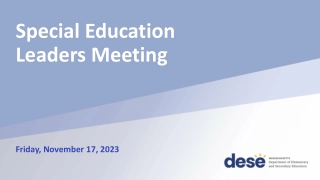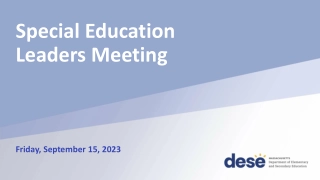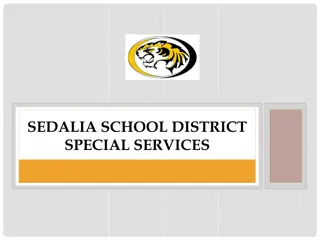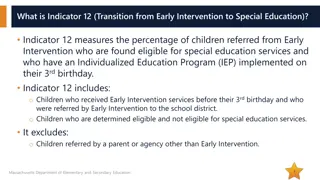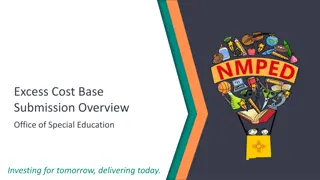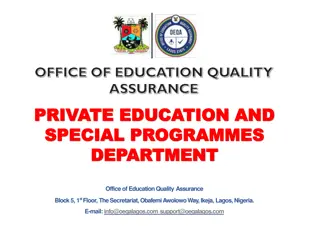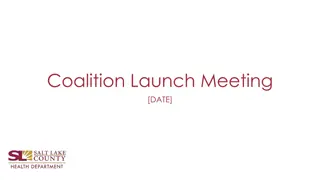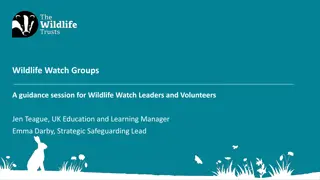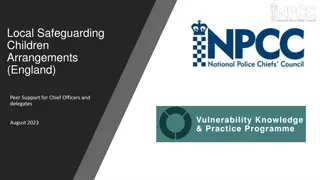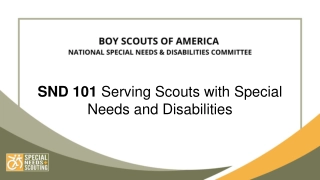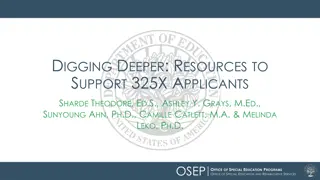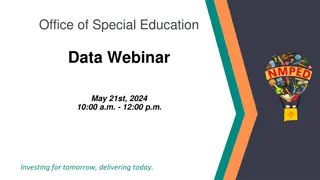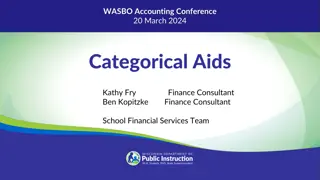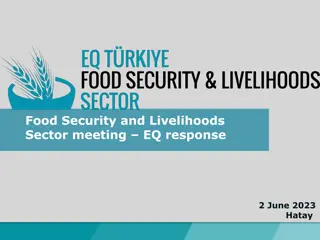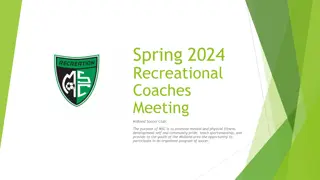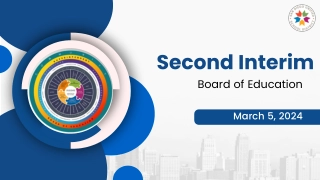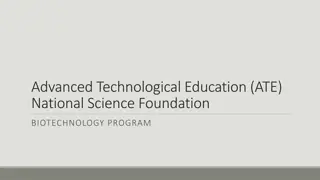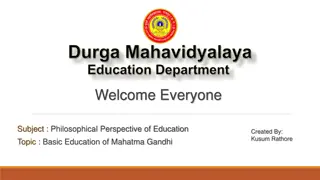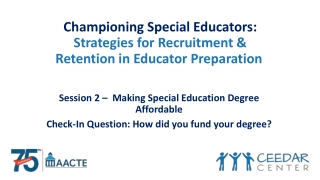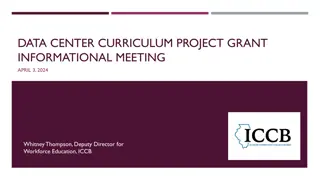Special Education Leaders Meeting
The DESE Special Education Leaders Meeting on June 23, 2023, focused on promoting antiracist, inclusive, and culturally sustaining practices in education. The agenda included updates on MCAS Alternate Assessment, new literacy screening guidance, and discussions on DESE's Educational Vision. Additionally, details were provided on resolution funds for FY24 and Chapter 42 of the Acts of 2022 addressing transition services for individuals with IEPs affected by the COVID-19 pandemic.
Download Presentation
Please find below an Image/Link to download the presentation.
The content on the website is provided AS IS for your information and personal use only. It may not be sold, licensed, or shared on other websites without obtaining consent from the author. Download presentation by click this link. If you encounter any issues during the download, it is possible that the publisher has removed the file from their server.
Presentation Transcript
Special Education Leaders Meeting Friday, June 23, 2023 1
Todays Agenda From DESE's Educational Vision: DESE works with districts, schools, and educators to promote teaching and learning that is antiracist, inclusive, multilingual, and multicultural; that values and affirms each and every student and their families; and that creates equitable opportunities and experiences for all students, particularly those who have been historically underserved. Special Education Updates MCAS Alternate Assessment Update New Early Literacy Screening Guidance Q&A 2
DESE's Educational Vision What principles guide our work? What does that look like in a classroom? All students in Massachusetts, particularly students from historically underserved groups and communities Culturally and linguistically sustaining classroom and school practices High expectations with targeted support All students Are known and valued Learning experiences Are relevant, real-world and interactive Enable students to excel at grade level and beyond Individualized supports Hyperlink to Ed Vision Massachusetts Department ofElementaryandSecondaryEducation 3
Resolution funds Year 3 Resolution funds Year 3 Resolution funds allocations for FY24 were sent on May 23, 2023. If you have not received your letter, please email us at IDEAequitableservices@mass.gov. A list of LEAs receiving resolution funds for FY24 can be found here. Written affirmations that reflect consultation regarding these funds are to be submitted with your IDEA application (through the GEMS system). A sample affirmation that includes Resolution Funds can be found at https://www.doe.mass.edu/sped/proshare/ in the Sample Documents section.
Chapter 42 of the Acts of 2022 To address the needs of individuals with IEPs who reached or will reach age 22 during the COVID-19 pandemic The Commonwealth allocated $10 million for transition services for individuals with disabilities that reached age 22 between March 10, 2020, and September 1, 2023, and were entitled to special education services up to age 22. What are Coordinated Pandemic-Related Transition Services? 6
The Department is collaborating with these agencies to expand their adult services to eligible young adults. Department of Developmental Services (DDS) Massachusetts Rehabilitation Commission (MRC) Massachusetts Commission for the Blind (MCB) Massachusetts Inclusive Concurrent Enrollment Initiative (MAICEI) Agencies Providing Services 7
Check the Security Portal for a list of eligible young adults Go to DropBox Central State Performance Plan Contact those eligible and their families to share the link about the services Flyers are available in multiple languages We need your Share the link with local community organizations and ask them to post it, such as at . Your social media platforms Towns social media platforms Parks and Recreation department YMCA/YWCA Community Action Faith-based organizations Other organizations in your community help! Questions: contact Martha at martha.s.daigle@mass.gov 8
Families who are interested: Should contact the Federation for Children with Special Needs (FCSN) Can usethis link,or the flyers QR code to submit their contact information FCSN will reach out to each family Can call FCSN to get more information at (617) 236-7210, (800) 331-0688 Next Steps for Families? 9
Indicator 7 Due August 31, 2023 ECOS database is open with latest SIMS certification All pre-K students coded as receiving special education listed Every district is required to submit entry data for students who started services during the 2022-2023 school year Every district is required to submit exit data for students with existing entry data Exit Data MUST be collected for: Students who progress to Kindergarten Students who move out of the district or state Students who are no longer eligible for special education services 10
Indicator 7 Resources If you do not see a student in the ECOS database, contact your district s directory administrator You will need access to the Indicator 7 Security Portal AND the Special Education State Performance Plan app Please do NOT email student information use the DropBox Resources: District User Guide for Indicator 7 Data Submission School User Guide for Indicator 7 Data Submission Indicator 7 Data webinar Contact Taletha Derrington (tderrington@air.org) OR Zach Weingarten (zweingarten@air.org) 11
Check out the updated website! IEP Improvement Project Training of Trainers Symposium May 31 and June 1 Vendor Office Hours Session June 8 IEP Office Hours June 15 12
Monthly Office Hours will happen throughout the 2023-2024 school year Full Day Training of Trainers Sessions, Fall 2023 In Person IEP Improvement - Upcoming Supports Regional Process Guide Sample IEPs Crosswalk 13
Additional Informational Sessions/Trainings Internal DESE staff State agency partners BSEA Advocacy organizations Professional organizations (e.g., MASC, MASS) 14
Confronting Racial Discrimination in Student Discipline Joint US Departments of Education and Justice guidance Issued on May 26, 2023 Describes how the Departments resolved investigations of 14 school districts in 10 states nationwide Supporting Students' Social, Emotional, Behavioral, and Academic Well-Being and Success fact sheets and webinars 15
Next Special Education Leaders Meeting: August 18, 2023 12:00-1:00 16 16
Update: MCAS-Alt Eligibility Guidelines 17 17
Robert Pelychaty Manager of Inclusive Assessment Massachusetts Department of Elementary and Secondary Education (DESE) 18 18
Background The Every Students Succeeds Act (ESSA) has made significant changes regarding student participation rates in the alternate assessment. The number of students who may take the alternate assessment is limited to no more than 1.0 percent of the total number of all students in the State who are assessed in any of the given subjects. ESSA further requires that a school district exceeding the 1.0 percent cap in any subject must submit a verification to the department, and the department must provide appropriate guidance to that district. Previously, there was no cap on participation rates. 19 19
A Dear Colleague Letter from the Office of Special Education stated that, States that adopt Alternate Assessment based on Alternate Achievement Standards must create a definition for students with the most significant cognitive disabilities. Further in 34 CFR 200.6 - Inclusion of all students . consistent with section 612(a)(16)(C) of the IDEA, [States must] monitor implementation of clear and appropriate guidelines for IEP teams to apply in determining, on a case-by-case basis, which students with the most significant cognitive disabilities will be assessed based on alternate academic achievement standards. Such guidelines must include a State definition of students with the most significant cognitive disabilities that addresses factors related to cognitive functioning and adaptive behavior References for additional information NCEO Reports: Alternate Assessments for Students with Significant Cognitive Disabilities: Participation Guidelines and Definitions (#406) Thurlow, M. L., Lazarus, S. S., Larson, E. D., Albus, D. A., Liu, K. K., & Kwong, E. (2017). Alternate assessments for students with significant cognitive disabilities: Participation guidelines and definitions (NCEO Report 406). Minneapolis, MN: University of Minnesota, National Center on Educational Outcomes. NCEO Reports: 2018-19 Participation Guidelines and Definitions for Alternate Assessments based on Alternate Academic Achievement Standards (#415) Thurlow, M. L., Lazarus, S. S., Albus, D. A., Larson, E. D., & Liu, K. K. (2019). 2018-19 participation guidelines and definitions for alternate assessments based on alternate academic achievement standards(NCEO Report 415). Minneapolis, MN: University of Minnesota, National Center on Educational Outcomes.) 20 20
Definition for Students with the Most Significant Cognitive Disabilities Massachusetts defines students with the most significant cognitive disabilities as students who: have cognitive disabilities evidenced by significant delays in attaining age-level academic achievement standards, even with systematic, extensive individually designed instruction, related services, and modifications;and have cognitive disabilities that significantly impact their educational performance and ability to applylearning from one setting to another; and require extensive, direct individualized instruction and substantial supports to achieve measurable gains on the challenging State academic content standards for the grade in which the student is enrolled; and perform significantly below average in general cognitive functioning and adaptive behavior. This is defined as a student functioning two or more standard deviations below the mean on commonly accepted norm-referenced assessments in both cognitive functioning and adaptive behavior(e.g., two or more adaptive skill areas such as daily living skills, communication, self-care, social skills, and academic skills). 21 21
Consideration for Schools Resources and Guidance For the spring 2024 MCAS-Alt decisions, Teams should evaluate student s eligibility for the alternate assessment (MCAS-Alt) based on the definition for Students with the Most Significant Disabilities. We anticipate this to be a transition year for schools and Teams to review MCAS-Alt eligibility decisions using the new definition. The Educator s Manual for the MCAS-Alt will include important resources and guidance for Teams to consider (Available Aug. 2023). The MCAS Accessibility and Accommodations Manual will also describe guidance for Teams (Available Aug. 2023). Trainings and Materials: MCAS-Alt web pages will include an FAQ and provide training opportunities for educators (Aug. 2023) 22 22
Early Literacy Screening Guidance 23 23
Early Screening Regulation Assessment Instructional Response Family Communication All students Grades K-3 At least 2x per year Use a screening instrument approved by the Department For students scoring significantly below benchmarks, schools: Within 30 school days of a screening result that is significantly below benchmarks, schools: Plan instruction to meet students needs Inform the student s family of result Determine need for progress monitoring Offer follow-up discussion 24 24
Importance of Early Literacy Screening Early Screening examines all students early literacy skills as a part of an equitable, culturally and linguistically sustaining literacy plan. Proactively designed to gather information on the most predictive literacy skills to identify each student s risk of experiencing reading difficulties. Allows educators to intervene with targeted evidence-based instruction at the first indication that additional support is needed. 25
DESE-approved screening assessments Approved: Meets Expectations Approved: Partially Meets Expectations DIBELS 8th Edition by the University of Oregon Acadience by Voyager Sopris Learning EarlyBird by EarlyBird Education (Kindergarten) Fastbridge by Illuminate mClass by Amplify Education i-Ready by Curriculum Associates MAP Reading Fluency by NWEA STAR by Renaissance 26 26
Significantly below benchmarks 25th percentile or below Approved screening assessment Suggested designation to determine significantly below relevant benchmarks At Risk Flag icon Well Below Benchmark / Intensive Intervention DIBELS 8th edition (paper) EarlyBird mCLASS DIBELS 8th edition (digital) Acadience Fastbridge i-Ready MAP Reading Fluency STAR Well Below Benchmark High Risk At Risk Flag and/or Below Grade Level Expectations Intervention or Urgent Intervention 27
What information must be shared with families? Within 30 school days of a screening result that is significantly below relevant benchmarks, schools must: Inform the student s parent or guardian of the screening results Inform the student s parent or guardian of the school s instructional response Offer the student s parent or guardian the opportunity for a follow-up discussion DESE recommends that schools inform all families of students' screening results. 28 28
Sample family letters are provided Share Screening Result that is Significantly Below Benchmark Share Screening Family Report Introduce Screening 29 29
Resources for selecting a screening assessment Early Literacy Universal Screening Website: Highlights and Challenges Early Literacy Screeners At-A-Glance www.doe.mass.edu/instruction/screening-assessments.html 30 30
How can I get more support? Screening Screening Office Hours Plug and Play Resources (Coming soon!) 31 31
Q&A 32 32


